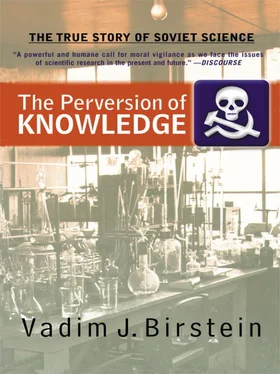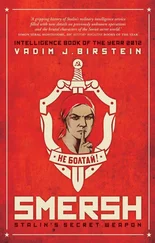Lenin(pseudonym of Ul’yanov), Vladimir(1870–1924), founder of the Bolshevik Party. Joined the Marxist movement in 1888. Graduated from the Law School of Kazan University (1891). A public defender in St. Petersburg (1893–1995). Arrested in 1895 and spent the next 15 months in jail; exiled to Siberia for three years. Left Russia (1900) and lived mainly in Switzerland. In 1903 became the leader of the Bolsheviks. Returned to Russia in November 1905, after the Russian Revolution of 1905 (January 1905). Proclaimed the theory of the “hegemony” of the proletariat in the democratic revolution, with the goal of establishing a “revolutionary democratic dictatorship of the proletariat and the peasantry.” Abroad from 1907–1917. Published his main works on the analysis of the capitalist economy and system. In April 1917, German authorities permitted him and his closest lieutenants to pass through Germany to neutral Sweden and then on to Russia with the hope that his presence would destabilize Russia and help Germany win the war. In November 1917, inspired the Bolshevik coup. The first chairman of the Council of Commissars (1917–1924). By spring of 1922, fell seriously ill (had syphilis). Died on January 22, 1924.
Leonov, Aleksandr(1905–1954) joined the OGPU in 1926. Head of the Sixth (Investigation) Department of the Main Directorate of the Military Counterintelligence (SMERSH) of the Defense Commissariat (1943–1946), then of the MGB Department for Investigation of Especially Important Cases (1946–1951). Arrested in 1951 along with Abakumov and his men. On December 19, 1954, condemned to death and shot after the trial.
Levitsky, Grigory(1878–1942), cytogeneticist. Head of the Cytology Department at Vavilov’s All-Union Plant Breeding Institute (VIR) (1925–1941). Corresponding member (1932). Introduced the scientific term “karyotype” to describe a species-specific complex of chromosomes. Arrested in 1932, 1937, and 1941. Died in prison in 1942. In 1945, members of his family were also arrested.
Likhachev, Mikhail(1913–1954) joined the NKVD in 1937. Deputy head of the Investigation Department of the Main SMERSH Directorate (1943–1946), then of the MGB Department for Investigation of Especially Important Cases (1946–1951). In 1946, also headed a group of SMERSH officers in charge of controlling Soviet investigators and prosecutors at the Nuremberg Trial. Participated in the organization of several show trials in Moscow and abroad, including the anti-Semitic Slansky trial in Prague in 1949. Arrested on July 8, 1951, along with Abakumov, Leonov and Komarov. On December 19, 1954, shot after the trial.
Lozovsky(or Dorizo), Solomon(1878–1952), state figure. Joined the Bolshevik Party in 1901. General secretary of the Profintern (Red International of Professional Unions) (1921–1937), director of the state publishing house Goslitizdat (1937–1939), and deputy foreign commissar/minister (1939–1946), deputy head (1941–1945) and then head (1945–1948) of the Soviet information agency Sovinformburo. In 1948, chair of the Department of Foreign Affairs at the High Party School under the Central Committee. Arrested in 1949 as a member of the Jewish Anti-Fascist Committee (JAC) and shot in 1952 after the trial against the JAC.
Lunacharsky, Anatolii(1875–1933), Party figure. Joined the Party in 1898. Arrested and imprisoned during the Russian Revolution of 1905. In 1909, joined the writer Maxim Gorky in Capri, Italy. In March 1917, joined Leon Trotsky and Lenin in Russia. Soviet commissar of education (1917–1929). Saved many historic buildings and works of art from destruction. Wrote many plays (three were published in 1923 in English). Personal friend of Bernard Shaw, Bertolt Brecht, and other famous writers. Chairman of the Scientific Council of the Central Executive Committee (1929–1930). Academician (1930). Director of the Institute of Russian Literature (Pushkin’s House) (1932–1933). In 1933, appointed Soviet ambassador to Spain. Died soon after.
Luppol, Ivan(1896–1943), historian and Marxist philosopher. Academician (1939), director of the Institute of World Literature. In 1942, a cell mate of Nikolai Vavilov in Saratov Prison. Died in a labor camp in Mordovia in 1943 (Tolz, Russian Academicians , p. 43; Vavilov and Rokityansky, “Golgotha,” p. 833).
Lysenko, Trofim(1898–1976), agronomist and author of pseudotheories on the inheritance of acquired characters. Graduated from Kiev Agricultural Institute (Ukraine) (1925). Member of the Ukrainian Academy of Sciences (1934), of the Agricultural Academy (VASKhNIL) (1935), and of the USSR Academy (1939). Director of the Odessa Institute of Genetics and Breeding (1936–1938), and the Academy Institute of Genetics (1940–1965); president of VASKhNIL (1938–1956; 1961–1962), and head of the Genetics Department of the Timiryazev Agricultural Academy in Moscow (1948–1965). Editor of the journals Vernalization (1935–1941) and Agrobiology (1946–1965). Deputy head of the USSR Supreme Soviet (1938–1956). Head of the Lenin Hills Experimental Station of the Academy of Sciences (1966–1976). Stalin Prize (1941, 1943, and 1949), Hero of Socialist Labor (1945).
Mairanovsky, Grigory(1899–1964), biochemist and poison expert. Graduated from Tbilisi University (1919) and from the Second Moscow Medical Institute (1923). Head of secret laboratories in the Bach Institute of Biochemistry (1928–1935) and in the All-Union Institute of Experimental Medicine (1935–1938), head of Laboratory No. 1 within the NKVD/NKGB (1938–1946). Used prisoners condemned to death for experiments with poisons. In the late 1940s, participated in political assassinations as a member of Pavel Sudoplatov’s special team. Arrested on December 12, 1951, in connection with Abakumov’s arrest. Tried on February 14, 1953; condemned to 10 years’ imprisonment. Kept in Vladimir Prison. In 1953, 1957, and 1958, brought to Moscow and interrogated about his experiments during investigations in the Beria, Eitingon, and Sudoplatov cases. In 1961, after release from prison, was ordered to leave Moscow for Makhachkala (near the city of Baku), where he headed a small biochemical laboratory.
Malenkov, Georgii(1902–1988), Party figure. Joined the Party in 1920, became Stalin’s secretary (1928–1930). First secretary of the Moscow Regional Committee (1930–1934), head of the Personnel Department of the Orgburo in the Central Committee (1934–1939), one of five secretaries of the Central Committee (1939–1946; 1948–1953), head of the Directorate of Cadres of the Committee (1939–1946), member of the State Defense Committee (1941–1945). Member of the Politburo and deputy chair of the USSR Council of Ministers, Sovmin (1946–1955). Before Zhdanov’s death in 1948, was his rival within the Politburo; viewed as Stalin’s successor. After Stalin’s death, chair (1953–1955) and then deputy chair (1955–1957) of the Sovmin. In 1957, dismissed by Khrushchev and demoted to director of a hydroelectrical station in Siberia. In 1961, expelled from the Communist Party (Naumov and Sigachev, Lavrentii Beria , p. 462; Hahn, Weiner G., Postwar Soviet Politics: The Fall of Zhdanov and the Defeat of Moderation, 1946–53 [Ithaca: Cornell University Press, 1982], pp. 34–51; 104–113, 156–160; Ra’anan, Gavriel D., International Policy Formation in the USSR: Factional “Debates” During the Zhdanovshchina [Hamden, CT: Archon, 1983], pp. 12–24).
Meister, Georgii(1873–1943), plant breeder, director of the Saratov Agricultural Experimental Station and chair of the Genetics and Selection Department at Saratov Agricultural Institute (1923–1937). Member of the Agricultural Academy (VASKhNIL) (1935). In 1937, vice president and then acting president of the VASKhNIL. The main proponent of the agreement of geneticists and agronomists with Lysenko. Arrested in 1938 and later shot.
Читать дальше











